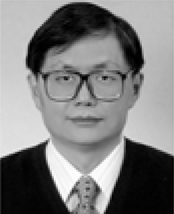Abstract:
We propose a very high-throughput fully hardwired CABAC encoder for ultra-high resolution video. Our architecture includes hardwired circuits for binarization, context mo...Show MoreMetadata
Abstract:
We propose a very high-throughput fully hardwired CABAC encoder for ultra-high resolution video. Our architecture includes hardwired circuits for binarization, context modeling, neighbor data access, and a six-stage pipelined binary arithmetic encoder (BAE). Our BAE can encode multiple bins per cycle. In order to keep up with the BAE throughput, we propose acceleration methods for the bin and context index generations of several types of frequent syntax elements (SE). We further propose a novel architecture that shortens the critical path of renormalization and bitstream generation. Our design can encode 1.42 bins per cycle on the average, and it achieves a throughput of 315 Mbin/sec. Simulation results show that it can real-time encode QFHD (3840×2176) video at 30fps or 1080HD (1920x1088) at 60 fps for H.264/AVC main profile, level 5.1 by running at 222 MHz. We have successfully integrated the proposed CABAC encoder into an H.264/AVC encoder system using an SoC platform1.
Published in: IEEE Transactions on Consumer Electronics ( Volume: 56, Issue: 4, November 2010)

Department of Computer Science, National Tsing Hua University, Hsinchu, Taiwan
Jian-Wen Chen received the BS degree and MS degree in computer science from National Tsing Hua University, HsingChu, Taiwan, R.O.C., in 2003 and 2005, respectively, where he is working toward the Ph.D degree.
His research interests include H.264/AVC video coding, arithmetic coding, and VLSI design.
Jian-Wen Chen received the BS degree and MS degree in computer science from National Tsing Hua University, HsingChu, Taiwan, R.O.C., in 2003 and 2005, respectively, where he is working toward the Ph.D degree.
His research interests include H.264/AVC video coding, arithmetic coding, and VLSI design.View more

Department of Computer Science, National Tsing Hua University, Hsinchu, Taiwan
Li-Cian Wu received the BS degree and MS degree in computer science from National Tsing Hua University, HsingChu, Taiwan, R.O.C., in 2005 and 2008, respectively. After graduation she joined Realtek Semiconductor Corp., HsinChu, Taiwan.
Her research interests are entropy coding, and VLSI design.
Li-Cian Wu received the BS degree and MS degree in computer science from National Tsing Hua University, HsingChu, Taiwan, R.O.C., in 2005 and 2008, respectively. After graduation she joined Realtek Semiconductor Corp., HsinChu, Taiwan.
Her research interests are entropy coding, and VLSI design.View more

Department of Computer Science, National Tsing Hua University, Hsinchu, Taiwan
Po-Sheng Liu received the BS degree and MS degree in computer science from National Tsing Hua University, HsingChu, Taiwan, R.O.C., in 2004 and 2006, respectively.
His research interests are video coding, and VLSI design.
Po-Sheng Liu received the BS degree and MS degree in computer science from National Tsing Hua University, HsingChu, Taiwan, R.O.C., in 2004 and 2006, respectively.
His research interests are video coding, and VLSI design.View more

Department of Computer Science, National Tsing Hua University, Hsinchu, Taiwan
Youn-Long Lin is professor of computer science and Dean of Research & Development at National Tsing Hua University. He received his B.S. degree in electronics engineering from National Taiwan University of Science and Technology in 1982, and his Ph.D. in computer science from the University of Illinois, Urbana-Champaign, IL, U.S.A. in 1987. Upon his graduation, he joined National Tsing Hua University, Hsin-Chu, Taiwan, wh...Show More
Youn-Long Lin is professor of computer science and Dean of Research & Development at National Tsing Hua University. He received his B.S. degree in electronics engineering from National Taiwan University of Science and Technology in 1982, and his Ph.D. in computer science from the University of Illinois, Urbana-Champaign, IL, U.S.A. in 1987. Upon his graduation, he joined National Tsing Hua University, Hsin-Chu, Taiwan, wh...View more

Department of Computer Science, National Tsing Hua University, Hsinchu, Taiwan
Jian-Wen Chen received the BS degree and MS degree in computer science from National Tsing Hua University, HsingChu, Taiwan, R.O.C., in 2003 and 2005, respectively, where he is working toward the Ph.D degree.
His research interests include H.264/AVC video coding, arithmetic coding, and VLSI design.
Jian-Wen Chen received the BS degree and MS degree in computer science from National Tsing Hua University, HsingChu, Taiwan, R.O.C., in 2003 and 2005, respectively, where he is working toward the Ph.D degree.
His research interests include H.264/AVC video coding, arithmetic coding, and VLSI design.View more

Department of Computer Science, National Tsing Hua University, Hsinchu, Taiwan
Li-Cian Wu received the BS degree and MS degree in computer science from National Tsing Hua University, HsingChu, Taiwan, R.O.C., in 2005 and 2008, respectively. After graduation she joined Realtek Semiconductor Corp., HsinChu, Taiwan.
Her research interests are entropy coding, and VLSI design.
Li-Cian Wu received the BS degree and MS degree in computer science from National Tsing Hua University, HsingChu, Taiwan, R.O.C., in 2005 and 2008, respectively. After graduation she joined Realtek Semiconductor Corp., HsinChu, Taiwan.
Her research interests are entropy coding, and VLSI design.View more

Department of Computer Science, National Tsing Hua University, Hsinchu, Taiwan
Po-Sheng Liu received the BS degree and MS degree in computer science from National Tsing Hua University, HsingChu, Taiwan, R.O.C., in 2004 and 2006, respectively.
His research interests are video coding, and VLSI design.
Po-Sheng Liu received the BS degree and MS degree in computer science from National Tsing Hua University, HsingChu, Taiwan, R.O.C., in 2004 and 2006, respectively.
His research interests are video coding, and VLSI design.View more

Department of Computer Science, National Tsing Hua University, Hsinchu, Taiwan
Youn-Long Lin is professor of computer science and Dean of Research & Development at National Tsing Hua University. He received his B.S. degree in electronics engineering from National Taiwan University of Science and Technology in 1982, and his Ph.D. in computer science from the University of Illinois, Urbana-Champaign, IL, U.S.A. in 1987. Upon his graduation, he joined National Tsing Hua University, Hsin-Chu, Taiwan, where he established the THEDA Group (Tsing Hua EDA).
Professor Lin's primary research interest is in computer-aided design (CAD) of very large-scale integrated circuits (VLSI) with emphasis on physical design automation and high-level synthesis. He co-authored the book “High Level Synthesis — Introduction to Chip and System Design.” His current research focus is on design technology for System-on-a-Chips (SOC) employing reusable silicon intellectual properties (IPs).
Dr. Lin is a senior member of the IEEE, the IEEE Computer Society, the IEEE Circuit and System Society, the IEEE Solid State Circuit Society, and the Association for Computing Machinery. He is a board member of the Taiwan IC Design Society. He is elected the president of Taiwan Integrated Circuit Design Society (TICD) for 2005–06. He is a nation-certified electrical engineer. He has served on program committee, organizing committee, steering committee, and executive committee for several conferences and workshops on various aspects of CAD including the Design Automation Conference(DAC), the International Conference on CAD(ICCAD), the Asia South-Pacific Conference on Design Automation(ASPDAC), the Asia Pacific Conference on Hardware Description Languages(APCHDL), the workshop on Synthesis and System Integration of MIxed technology(SASIMI), the International Symposium on System Synthesis(ISSS), the International Symposium on Physical Design (ISPD), the ACM Embedded Software Conference (EMSofT), the International Symposium on VLSI Design, Automation and Test (VLSI-DAT), the International SOC Conference (ISOCC), and the VLSI/CAD Symposium of Taiwan. Professor Lin has also served on the editorial boards of the ACM Transactions on Design Automation of Electronic Systems (TODAES), the ACM Transactions on Embedded Computing Systems (TECS), Journal of the Chinese Engineering Society, and the Journal of Information Science and Engineering (JISE).
Youn-Long Lin is professor of computer science and Dean of Research & Development at National Tsing Hua University. He received his B.S. degree in electronics engineering from National Taiwan University of Science and Technology in 1982, and his Ph.D. in computer science from the University of Illinois, Urbana-Champaign, IL, U.S.A. in 1987. Upon his graduation, he joined National Tsing Hua University, Hsin-Chu, Taiwan, where he established the THEDA Group (Tsing Hua EDA).
Professor Lin's primary research interest is in computer-aided design (CAD) of very large-scale integrated circuits (VLSI) with emphasis on physical design automation and high-level synthesis. He co-authored the book “High Level Synthesis — Introduction to Chip and System Design.” His current research focus is on design technology for System-on-a-Chips (SOC) employing reusable silicon intellectual properties (IPs).
Dr. Lin is a senior member of the IEEE, the IEEE Computer Society, the IEEE Circuit and System Society, the IEEE Solid State Circuit Society, and the Association for Computing Machinery. He is a board member of the Taiwan IC Design Society. He is elected the president of Taiwan Integrated Circuit Design Society (TICD) for 2005–06. He is a nation-certified electrical engineer. He has served on program committee, organizing committee, steering committee, and executive committee for several conferences and workshops on various aspects of CAD including the Design Automation Conference(DAC), the International Conference on CAD(ICCAD), the Asia South-Pacific Conference on Design Automation(ASPDAC), the Asia Pacific Conference on Hardware Description Languages(APCHDL), the workshop on Synthesis and System Integration of MIxed technology(SASIMI), the International Symposium on System Synthesis(ISSS), the International Symposium on Physical Design (ISPD), the ACM Embedded Software Conference (EMSofT), the International Symposium on VLSI Design, Automation and Test (VLSI-DAT), the International SOC Conference (ISOCC), and the VLSI/CAD Symposium of Taiwan. Professor Lin has also served on the editorial boards of the ACM Transactions on Design Automation of Electronic Systems (TODAES), the ACM Transactions on Embedded Computing Systems (TECS), Journal of the Chinese Engineering Society, and the Journal of Information Science and Engineering (JISE).View more


